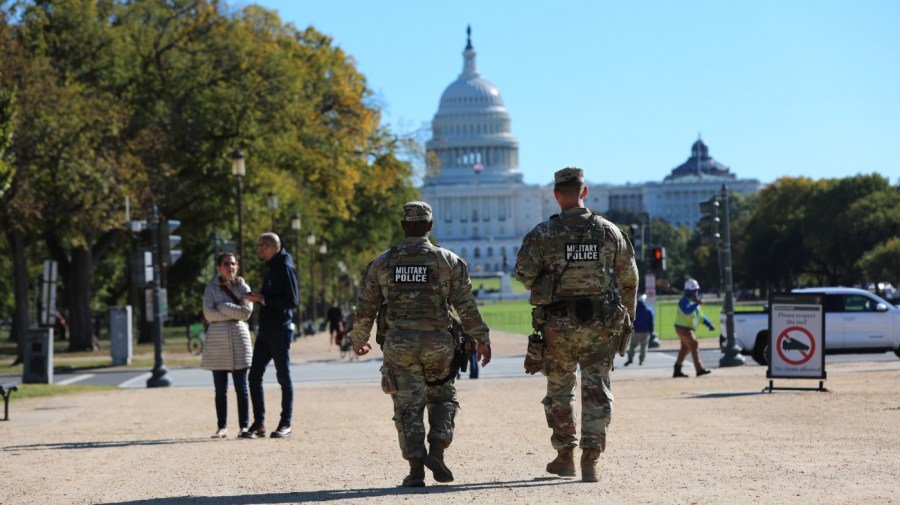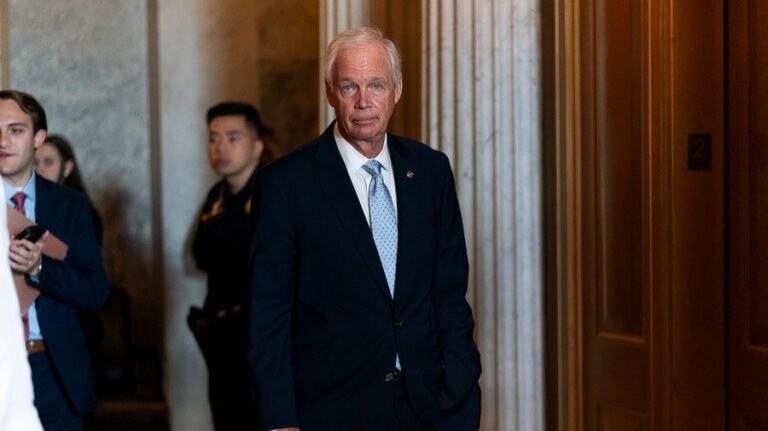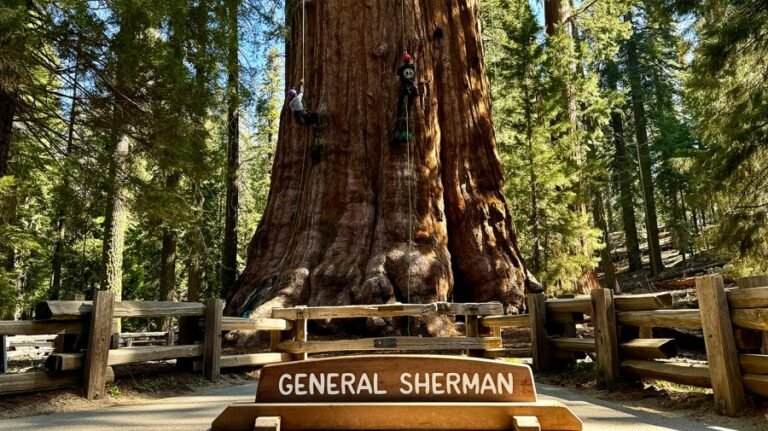
On Sunday, President Trump once again raised the possibility of invoking the Insurrection Act of 1807 to deploy American troops in U.S. cities.
Previously, in response, Illinois Gov. JB Pritzker (D) had denied that the president had such authority, arguing, “the Insurrection Act is called the Insurrection Act for a reason. … There has to be a rebellion. There has to be an insurrection in order for him to be allowed to invoke it.”
Although the governor’s point might be rhetorically compelling, the actual text of the law appears to give the president the discretion to use the military for law-enforcement purposes.
The pertinent section states: “The president, by using the militia [i.e. the National Guard] or the armed forces, or both … shall take such measures as he considers necessary to suppress, in a state, any insurrection, domestic violence, unlawful combination, or conspiracy, if it … opposes or obstructs the execution of the laws of the United States or impedes the course of justice under those laws.”
So not only does it appear that the president has the discretion to use the military, the word “shall” implies that he has a duty to do so if the laws are being obstructed.
Whether this reading of the law is a slam dunk for the president, however, might rest on what role the federal courts play in this matter. Earlier this month, U.S. District Judge Karin Immergut, whom Trump appointed in his first term, temporarily blocked Trump’s deployment of the Oregon National Guard to Portland, ostensibly to help protect federal property and immigration enforcement operations.
She wrote that the situation in Portland in no way justified the president’s use of the law allowing the federalization of the National Guard for law-enforcement purposes: “The president’s determination was simply untethered to the facts.”
Yet historically, federal courts have been wary about substituting their own judgment about core executive responsibilities. It was no surprise then when, by a two-to-one ruling the Ninth Circuit U.S. Court of Appeals on Monday removed Judge Immergut’s stay, stating that “Rather than reviewing the president’s determination with great deference, the district court substituted its own determination of the relevant facts and circumstances.”
The key precedent in this matter is Martin v. Mott (1825), in which Supreme Court Justice Joseph Story argued that, under the Militia Act of 1795, it was the president’s discretion “exclusively” to determine whether calling out of the state militias to execute federal laws was justified or not.
The specific issue before the court in Martin v. Mott was whether President James Madison had the unilateral discretion to call out the militia during the War of 1812. But the statute also provided for the president to use the militia “to execute the laws of the union” when “opposed, or the execution thereof obstructed, in any state” when local and federal law enforcement efforts are not sufficient.
That the president also retained unilateral discretion in the less dire circumstance is buttressed by the fact that the original Militia Act of 1792 required a determination by a federal judge that the laws were going unenforced. After George Washington’s adroit handling of the Whiskey Rebellion, Congress dropped the requirement for a federal judge to certify the facts on the ground before the president could act.
There are two things to note here. First, Justice Story was interpreting a congressional statute. As evidenced by the 1792 Militia Act, Congress can change the law to require the courts to make a factual determination if it so desires.
Second, Story was hardly naive about the possible consequences of his opinion. He made it clear that the president’s authority under the statute was “susceptible of abuse” and, as such, it rested on the chief executive’s “public virtue, and honest devotion to the public interests.”
Nevertheless, if the president did abuse his statutory discretion, the remedies were, according to Story, “elections, and the watchfulness of the representatives of the nation” — meaning Congress. It was these “checks which can be useful to guard against usurpation or wanton tyranny.”
Given the likelihood that this Supreme Court will read the existing statute as giving the president the decision-making authority on whether and when to deploy the National Guard (or the active-duty military), and given the president cannot run for another term in office, the responsibility for checking President Trump’s abuses here falls to the other end of Pennsylvania Avenue.
To that end, Congress should begin by amending a law that delegates too much discretion to the White House, and by explicitly denying the administration funds to allow such abuses to continue.
Limited government requires not only laws but also the ambition of the political branches to check each other. If Congress doesn’t act, it will deserve no less blame if the deployment of American troops on American streets creates an even more serious political crisis.
Gary Schmitt is a senior fellow in the Program on Social, Cultural and Constitutional Studies at the American Enterprise Institute.


